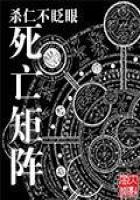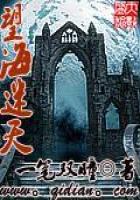The gigantic national machine that was erected during Grant's administration would have been ineffectual without local sources of power.These sources of power were found in the cities, now thriving on the new-born commerce and industry, increasing marvelously in numbers and in size, and offering to the political manipulator opportunities that have rarely been paralleled.** Between 1860 and 1890 the number of cities of 8000 or more inhabitants increased from 141 to 448, standing at 226 in 1870.
In 1865 less than 20% of our people lived in the cities; in 1890, over 30%; in 1900, 40%; in 1910, 46.3%.By 1890 there were six cities with more than half a million inhabitants, fifteen with more than 200,000, and twenty-eight with more than 100,000.In 1910 there were twenty-eight cities with a population over 200,000, fifty cities over 100,000, and ninety-eight over 50,000.
It was no uncommon occurrence for a city to double its population in a decade.In ten years Birmingham gained 245%, Los Angeles, 211%, Seattle, 194%, Spokane, 183%, Dallas, 116%, Schenectady, 129%.
The governmental framework of the American city is based on the English system as exemplified in the towns of Colonial America.
Their charters were received from the Crown and their business was conducted by a mayor and a council composed of aldermen and councilmen.The mayor was usually appointed; the council elected by a property-holding electorate.In New England the glorified town meeting was an important agency of local government.
After the Revolution, mayors as well as councilmen were elected, and the charters of the towns were granted by the legislature, not by the executive, of the State.In colonial days charters had been granted by the King.They had fixed for the city certain immunities and well-defined spheres of autonomy.But when the legislatures were given the power to grant charters, they reduced the charter to the level of a statutory enactment, which could be amended or repealed by any successive legislature, thereby opening up a convenient field for political maneuvering.The courts have, moreover, construed these charters strictly, holding the cities closely bound to those powers which the legislatures conferred upon them.
The task of governing the early American town was simple enough.
In 1790 New York, Philadelphia, Boston, Baltimore, and Charleston were the only towns in the United States of over 8000inhabitants; all together they numbered scarcely 130,000.Their populations were homogeneous; their wants were few; and they were still in that happy childhood when every voter knew nearly every other voter and when everybody knew his neighbor's business as well as his own, and perhaps better.
Gradually the towns awoke to their newer needs and demanded public service--lighting, street cleaning, fire protection, public education.All these matters, however, could be easily looked after by the mayor and the council committees.But when these towns began to spread rapidly into cities, they quickly outgrew their colonial garments.Yet the legislatures were loath to cast the old garments aside.One may say that from 1840 to 1901, when the Galveston plan of commission government was inaugurated, American municipal government was nothing but a series of contests between a small body of alert citizens attempting to fix responsibility on public officers and a few adroit politicians attempting to elude responsibility; both sides appealing to an electorate which was habitually somnolent but subject to intermittent awakenings through spasms of righteousness.
During this epoch no important city remained immune from ruthless legislative interference.Year after year the legislature shifted officers and responsibilities at the behest of the boss."Ripper bills" were passed, tearing up the entire administrative systems of important municipalities.The city was made the plaything of the boss and the machine.
Throughout the constant shifts that our city governments have undergone one may, however, discern three general plans of government.
The first was the centering of power in the city council, whether composed of two chambers--a board of aldermen and a common council--as in New York, Philadelphia, and Chicago, or of one council, as in many lesser cities.It soon became apparent that a large body, whose chief function is legislation, is utterly unfit to look after administrative details.Such a body, in order to do business, must act through committees.Responsibility is scattered.Favoritism is possible in letting contracts, in making appointments, in depositing city funds, in making public improvements, in purchasing supplies and real estate, and in a thousand other ways.So, by controlling the appointment of committees, a shrewd manipulator could virtually control all the municipal activities and make himself overlord of the city.
The second plan of government attempted to make the mayor the controlling force.It reduced the council to a legislative body and exalted the mayor into a real executive with power to appoint and to remove heads of departments, thereby making him responsible for the city administration.Brooklyn under Mayor Seth Low was an encouraging example of this type of government.
But the type was rarely found in a pure form.The politician succeeded either in electing a subservient mayor or in curtailing the mayor's authority by having the heads of departments elected or appointed by the council or made subject to the approval of the council.If the council held the key to the city treasury, the boss reigned, for councilmen from properly gerrymandered wards could usually be trusted to execute his will.















